Russia's Spring Offensive: Warmer Weather, Higher Hopes?
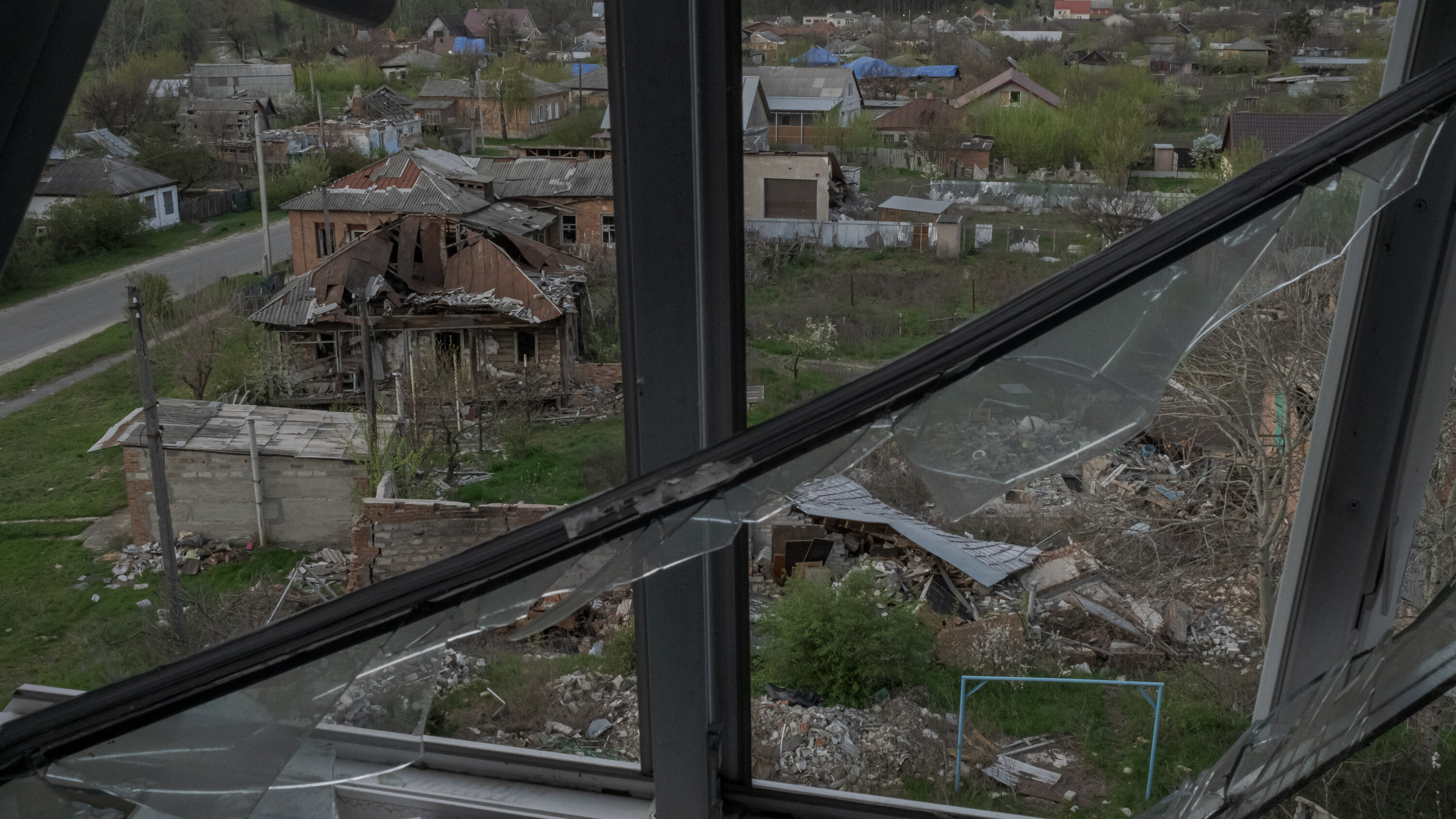
Table of Contents
Russia's Military Objectives and Strategies
Targeting Key Ukrainian Cities
Russia's spring offensive likely aims to capture key Ukrainian cities, securing territorial gains and potentially leveraging them for further negotiations. Bakhmut, a city fiercely contested throughout the winter, remains a potential primary target, despite significant losses suffered by Russian forces there. Securing the eastern Donbas region remains a key objective, potentially leading to further attempts to encircle Ukrainian forces and advance towards Kramatorsk and Sloviansk.
- Analysis of Russia's past offensive failures: Previous offensives have been hampered by poor planning, inadequate logistics, and fierce Ukrainian resistance. The anticipated spring offensive may see a renewed focus on combined arms tactics, attempting to break through Ukrainian defenses with a combination of infantry assaults, artillery barrages, and armored breakthroughs.
- Anticipated tactics: Renewed assaults, supported by heavy artillery and air strikes, are expected. Attempts to encircle Ukrainian forces and sever supply lines are also likely. The Wagner mercenary group, notorious for its brutal tactics, is anticipated to play a significant role in these operations.
- The role of Wagner mercenaries: While suffering heavy losses, the Wagner group continues to be a key element in Russia's offensive capabilities. Their deployment indicates a willingness to sustain high casualty rates in achieving specific tactical objectives.
The Significance of Donbas and Southern Ukraine
The Donbas region, encompassing Donetsk and Luhansk oblasts, holds immense strategic importance for Russia. Control of this area would provide access to critical infrastructure, including vital transport routes and industrial centers. Simultaneously, continued pressure on southern Ukraine aims to secure access to Crimea and disrupt Ukrainian supply lines. This potentially points to a two-pronged offensive strategy.
- Impact of terrain: The terrain in Donbas, characterized by rolling hills and urban areas, presents both opportunities and challenges for military operations. Ukraine's defensive fortifications will undoubtedly play a significant role.
- Securing supply lines: The effectiveness of Russia's offensive hinges on maintaining adequate supply lines. Ukrainian attacks on Russian logistical infrastructure, including rail lines and supply depots, pose a significant threat.
- Potential for a two-pronged offensive: A simultaneous push towards both eastern and southern Ukraine would stretch Ukrainian defenses, potentially creating opportunities for breakthroughs. This strategy, however, also entails significant logistical challenges.
Challenges Facing the Russian Offensive
Logistical Hurdles and Supply Chain Issues
Sustaining a large-scale offensive demands significant logistical capabilities. Russia faces significant challenges in providing adequate supplies, including fuel, ammunition, and replacement equipment, to its troops.
- Fuel shortages and ammunition supply: Reports suggest ongoing shortages of critical supplies. The effectiveness of Ukrainian counter-battery fire has also hampered Russia's ability to maintain artillery superiority.
- Size and composition of Russian forces: While exact figures are difficult to ascertain, Russia has likely deployed a substantial portion of its available forces. However, these forces may lack the training, equipment, and morale required for a successful offensive.
- Comparison with Ukrainian capabilities: Ukraine's ability to receive and deploy Western weaponry, coupled with its effective use of intelligence and counter-battery fire, significantly impacts Russia's logistical advantage.
The Ukrainian Defense and Counter-Offensive Potential
Ukraine has prepared extensively for Russia's spring offensive, constructing defensive lines and receiving substantial military aid from Western allies. This has significantly strengthened their ability to repel the attack.
- Ukrainian fortifications: Extensive minefields, trenches, and fortified positions are proving a significant hurdle for Russian advances.
- Counter-offensive preparations: While primarily focused on defense, Ukraine is also preparing for potential counter-offensives to exploit any weaknesses in the Russian lines.
- The role of Western-supplied weaponry: HIMARS rocket systems, tanks, and other advanced weaponry provided by Western allies significantly enhance Ukraine's defensive and offensive capabilities. Their effectiveness has been clearly demonstrated in previous engagements.
Geopolitical Implications and International Response
The Impact on International Relations
Russia's spring offensive has significant implications for international relations. Increased fighting is likely to escalate tensions between Russia and the West.
- Increased Western military aid to Ukraine: A major Russian offensive is likely to prompt increased military assistance from NATO and other Western nations, potentially including more advanced weaponry systems.
- Escalating international tensions: The potential for accidental escalation and miscalculation remains high, with the risk of the conflict expanding beyond Ukraine's borders.
- Reactions from global actors: The international community is closely watching the development of Russia's spring offensive. The potential for additional sanctions and diplomatic pressure will depend heavily on the course of the conflict.
The Role of International Sanctions and Economic Pressure
International sanctions imposed on Russia have significantly impacted its economy and its ability to sustain a prolonged military campaign.
- Effects of sanctions on the Russian economy: Sanctions have disrupted Russia's access to critical technologies and financial resources, hampering its ability to sustain a large-scale military operation.
- Impact on military capabilities: The long-term impact of sanctions on Russia's defense industry will increasingly constrain its ability to replace lost equipment and maintain its forces.
- Potential for further sanctions: Further sanctions remain a possibility depending on the scale and brutality of Russia's actions.
Conclusion
The success or failure of Russia's spring offensive remains uncertain. While the Kremlin's hopes are high, numerous challenges – logistical hurdles, Ukrainian defenses, and the ongoing geopolitical context – threaten to undermine its objectives. Analyzing the military strategies, logistical capabilities, and the impact of international sanctions provides a clearer picture of the potential outcomes. Continued monitoring of Russia's Spring Offensive is crucial for understanding the evolving conflict in Ukraine. Stay informed on the latest developments and learn more about the strategic implications of this crucial phase of the war. Understanding the intricacies of Russia's Spring Offensive is vital for comprehending the future trajectory of the conflict.

Featured Posts
-
 The Cruise Packing List What Not To Bring
Apr 30, 2025
The Cruise Packing List What Not To Bring
Apr 30, 2025 -
 Millions In Losses Federal Charges Filed In Major Office365 Data Breach
Apr 30, 2025
Millions In Losses Federal Charges Filed In Major Office365 Data Breach
Apr 30, 2025 -
 Vozmozhna Li Vstrecha Trampa I Zelenskogo Na Pokhoronakh Papy
Apr 30, 2025
Vozmozhna Li Vstrecha Trampa I Zelenskogo Na Pokhoronakh Papy
Apr 30, 2025 -
 Can Trong Khi Dau Tu Gop Von Nhung Rui Ro Tiem An Can Biet
Apr 30, 2025
Can Trong Khi Dau Tu Gop Von Nhung Rui Ro Tiem An Can Biet
Apr 30, 2025 -
 Beyonces New Levis Campaign Fans React To Her Revealing Shorts
Apr 30, 2025
Beyonces New Levis Campaign Fans React To Her Revealing Shorts
Apr 30, 2025
Latest Posts
-
 Alex Ovechkins 894th Goal Nhl Record Update Cp News Alert
Apr 30, 2025
Alex Ovechkins 894th Goal Nhl Record Update Cp News Alert
Apr 30, 2025 -
 Celtics Defeat Cavaliers Derrick Whites Performance And 4 Crucial Takeaways
Apr 30, 2025
Celtics Defeat Cavaliers Derrick Whites Performance And 4 Crucial Takeaways
Apr 30, 2025 -
 Ovechkin Ties Gretzkys Nhl Goal Record Cp News Alert
Apr 30, 2025
Ovechkin Ties Gretzkys Nhl Goal Record Cp News Alert
Apr 30, 2025 -
 4 Takeaways From The Celtics Victory Over The Cavaliers Derrick Whites Impact
Apr 30, 2025
4 Takeaways From The Celtics Victory Over The Cavaliers Derrick Whites Impact
Apr 30, 2025 -
 Rekord Ovechkina Kinopoisk Pozdravlyaet Novorozhdennykh Eksklyuzivnymi Soskami
Apr 30, 2025
Rekord Ovechkina Kinopoisk Pozdravlyaet Novorozhdennykh Eksklyuzivnymi Soskami
Apr 30, 2025
